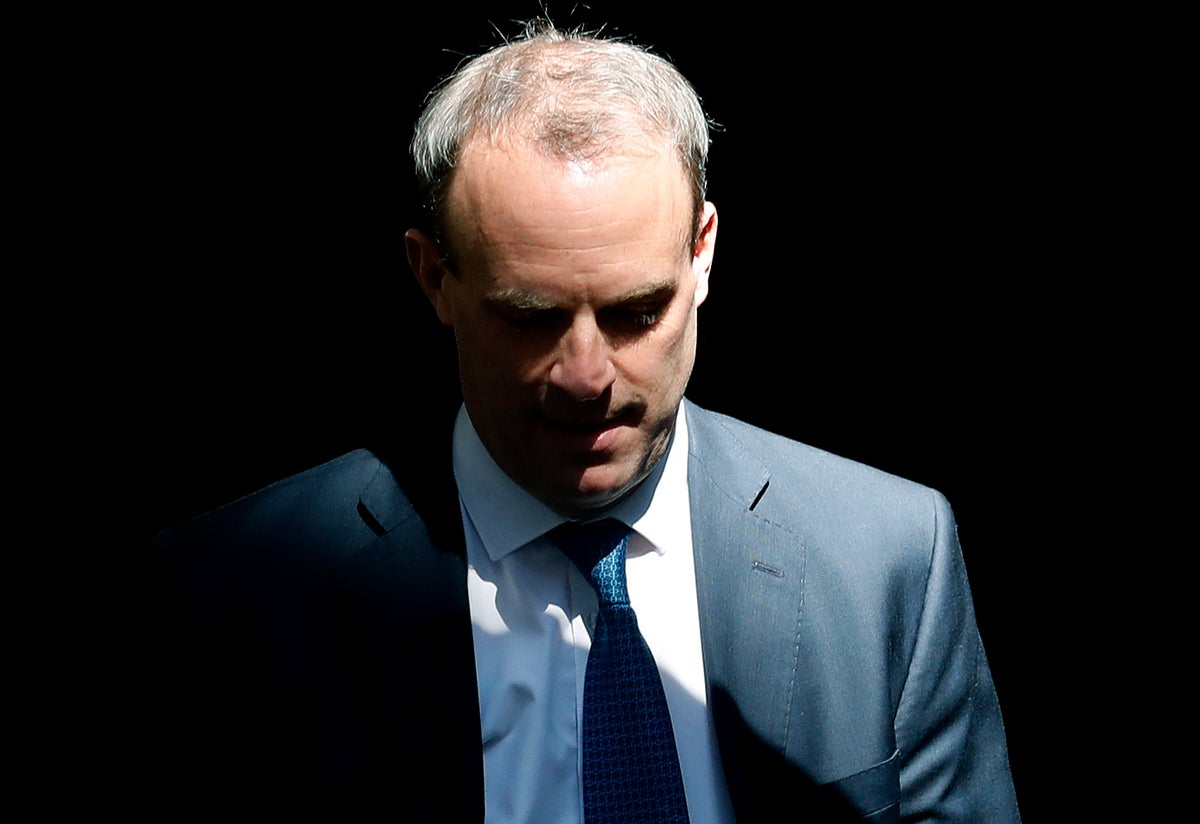
A new package of laws the government claims will strengthen victims’ rights “isn’t worth the paper it’s written on”, a watchdog has said.
Claire Waxman, the victims’ commissioner for London, said the Victims and Prisoners Bill had been “hijacked by Dominic Raab” to increase government powers while diluting its original aims.
The bill, which was unveiled three weeks before he was forced to resign as justice secretary for bullying civil servants, was originally drafted as the “Victims’ Bill” and underwent lengthy public consultation.
But Mr Raab bolted on controversial clauses that would have given him the power to veto prisoner releases and change the make-up of parole boards.
MPs will consider the law on Monday, and Ms Waxman and other victims’ advocates – such as Women’s Aid and The End Violence Against Women Coalition – are calling for them to strip out the former justice secretary’s additions and return to promises first made by the government in 2015.
“My initial reaction when I first saw the bill was that I wanted to rip it up as it’s not worth the paper it’s written on,” Ms Waxman told The Independent.
“I started the campaign for a victims’ law in 2013. It always had cross-party support and it was not supposed to be politicised. We were all on the same page but it seems Dominic Raab hijacked our bill and turned it into something unrecognisable.”
There is currently no national victims’ commissioner in post to scrutinise the plans, after Mr Raab reportedly blocked the reappointment of Dame Vera Baird last year and restarted a lengthy recruitment process.
Ms Waxman has written to his successor, Alex Chalk, and victims’ minister Edward Argar calling for them to withdraw the prisoner-focused additions to the bill and strengthen its remaining powers.
In letters seen by The Independent, she said government interference with release decisions would create more “uncertainty, delay and distress” and could have “damaging unintended consequences”.
Ms Waxman said she believed the power to veto the release of some prisoners breach the European Convention on Human Rights, and could be successfully challenged in court by inmates.
“I’ve been inundated with bereaved families and victims saying ‘this is awful, it’s not what we’ve asked for’,” she added. “It won’t deliver any meaningful change to victims in its current format.”
A report on the original draft Victims’ Bill by parliament’s justice committee said it fell “short of what is required” and continued to put the onus on victims to “claim rights they are often unaware of”.
The government has insisted its proposals put victims “at the heart of the justice system” and that the repackaged law still contained all measures originally promised.
It aims to put the principles of the Victims’ Code, which provides minimum standards of treatment, on a statutory footing and enhance scrutiny of prisons, probation, police and the courts.
The bill will also create an independent public advocate to represent the interests of people affected by disasters like Hillsborough, the Manchester Arena bombing and the Grenfell Tower fire.
New parts would give the justice secretary the power to “veto the release” of a new tier of offenders including murderers, rapists and terrorists in the interest of public safety, the Ministry of Justice said.
It is not possible for the government to extend a court’s sentence or prevent release indefinitely, so any veto would increase the period spent in custody against the time released on licence under probation monitoring.
The bill would also create a legal requirement for ex-police officers and detectives to sit on parole panels for “top-tier” cases.
It aims to legally ban prisoners serving whole-life orders from marrying or forming a civil partnership - although only 66 inmates in England and Wales are currently subject to the term, and officials could only point to one who had attempted to marry.
A Ministry of Justice spokesperson said: “Public protection is our number one priority and our parole reforms will ensure perpetrators face the strictest test before they are released and that victims’ voices are heard louder during the process.
“The bill will improve support for victims at every stage, setting out a clear expectation of the help and information they should receive from the police and courts, while enshrining the principles of the Victims’ Code in law.”







